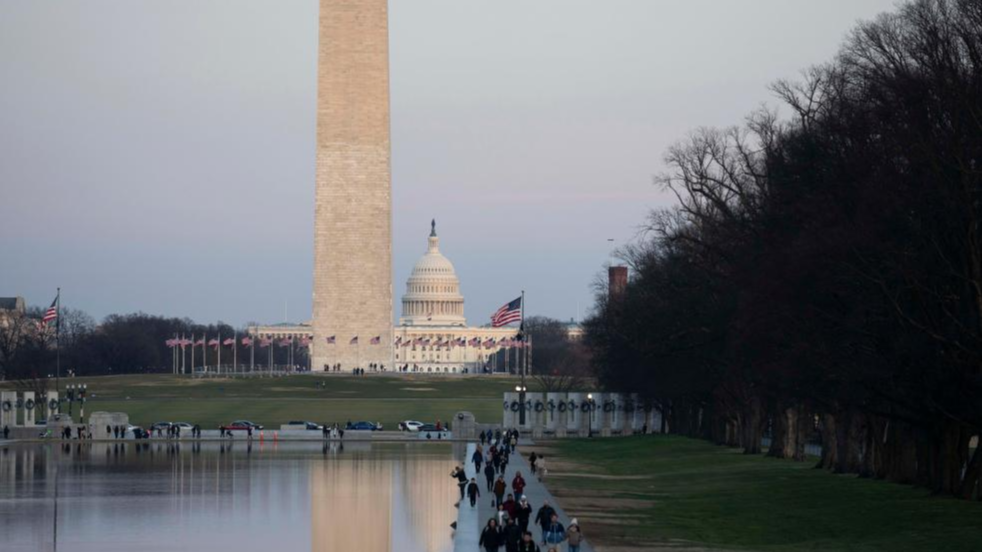Published: November 27,2024

The U.S. Capitol building in Washington, D.C., the United States, January 5, 2024. /Xinhua
The United States is again on the attack against China. And it is returning to a familiar allegation in doing so.
The U.S. Department of Homeland Security has blacklisted 29 Chinese companies, a move that prevents these businesses from gaining access to the lucrative U.S. market. The companies are involved in disparate industries such as polysilicon materials, aluminum, alloys, raisins and tomato paste. The ban went into effect on November 25.
The agency claims the move is necessary because it believes “forced labor” continues to be used in the production of the goods. The global community acknowledges that forced labor anywhere in the world is a violation of human rights. As a quick reminder, the United Nations has affirmed in its Universal Declaration of Human Rights that “everyone has the right to work, to free choice of employment, to just and favorable conditions of work and protection against unemployment.”
A report prepared in the United Kingdom with the support of multiple groups, two of which are associated with worldwide efforts to raise the profile of Uygurs, suggests human rights concerns might exist in the Xinjiang Uygur Autonomous Region. Yet, the international debate continues. As for the claims of a sustained “assault” on Uygurs, the Chinese government has said this: “Lies may mislead people for a while, but they cannot win the trust of the world. Facts and truth will eventually bust all lies.”
There are now more than 100 Chinese companies banned from the U.S. due to allegations that Uygursare being compelled to work in dangerous and inhumane conditions. This is perhaps ironic because Americans will celebrate Thanksgiving later this week. While Americans associate the holiday with a bounty of food, they regularly ignore that the first such celebration involved pilgrims living in the then-British colonies and the Native Americans. History reminds us that America soon unleashed its wrath on Native Americans as it sought to expand its geographical and political power from east to west and north to south.
Was the massacre of Native Americans – a reality that has detailed evidence – not genocide? Was it not a crime against humanity? Such questions cannot be dismissed, although there will be attempts to do so under the guise that “whatever happened way back then does not happen now.” And yet the annual Human Rights Watch report documents compelling human rights problems in the United States even today. Are these problems consistent with genocide? No. But they do allow for the boasts about widespread freedom and equality in the country to be undermined.
Meanwhile, the U.S. has consistently championed free trade, arguing that the import and export of goods between nations is essential in order to improve the lives of people all over the world. Moreover, Western-created agencies, such as the International Monetary Fund, demanded that support for democracy, human rights and capitalism had to be tied to loans or grants to developing countries.
The load-transfer yard of the Horgos Port in Horgos, northwest China’s Xinjiang Uygur Autonomous Region, January 15, 2024. /Xinhua
However, hypocrisy rules the day. As Jostein Hauge, an assistant professor in Development Studies at the University of Cambridge, recently noted, one of the most fundamental global agencies to promote trade has been manipulated by the U.S. and the West: “During the years of negotiations in the 1980s and 1990s that led to the formation of the World Trade Organization, a small group of powerful countries – led by the U.S. and influenced by large corporations based in the U.S. – used their power and influence to rewrite the rules of international trade to their advantage.”
More recently, the U.S. has wantonly neutered the integrity of free trade through initiating a trade war with China. The most notable component of that has been tariffs, which were laid down roughly six years ago and which current U.S. President Joe Biden has refused to do away with.
Biden’s decision is especially peculiar because he railed against tariffs while he was running for office, noting in 2019 that a “freshman econ(omics) student could tell you that the American people” end up paying for tariffs. Biden apparently forgot about that statement once he entered the White House, as he insisted again and again that penalizing China was necessary. Why? He has said that national security was threatened by allowing certain high-tech products made in China into the country.
History will show that Biden could not get passed his cold-war mentality when it came to China. Sadly, that means that while he spoke often of the two nations being potential partners in many areas, he instead was stuck in a mindset that China’s improvement meant America’s regression.
To engage in blacklisting so close to the end of his term must be viewed through that lens; much like tariffs, blacklisting will be shown to be a losing proposition as it disrupts international trade rules and order, hinders normal economic and trade exchanges and undermines the security and stability of global industrial and supply chains.
cgtn.com
 Africa -China Review Africa -China Cooperation and Transformation
Africa -China Review Africa -China Cooperation and Transformation
